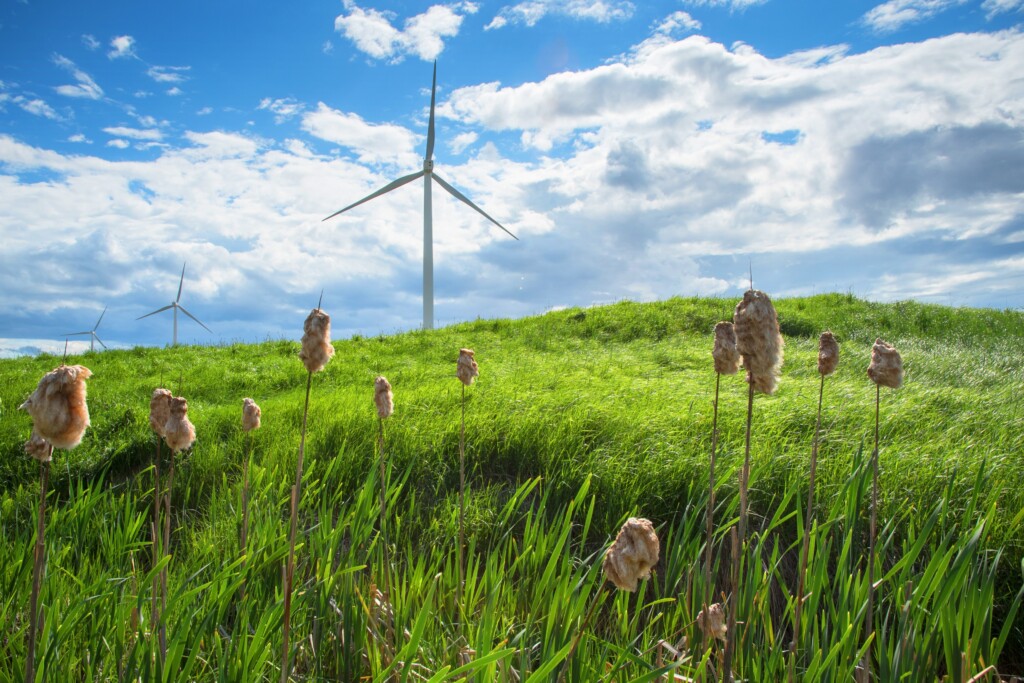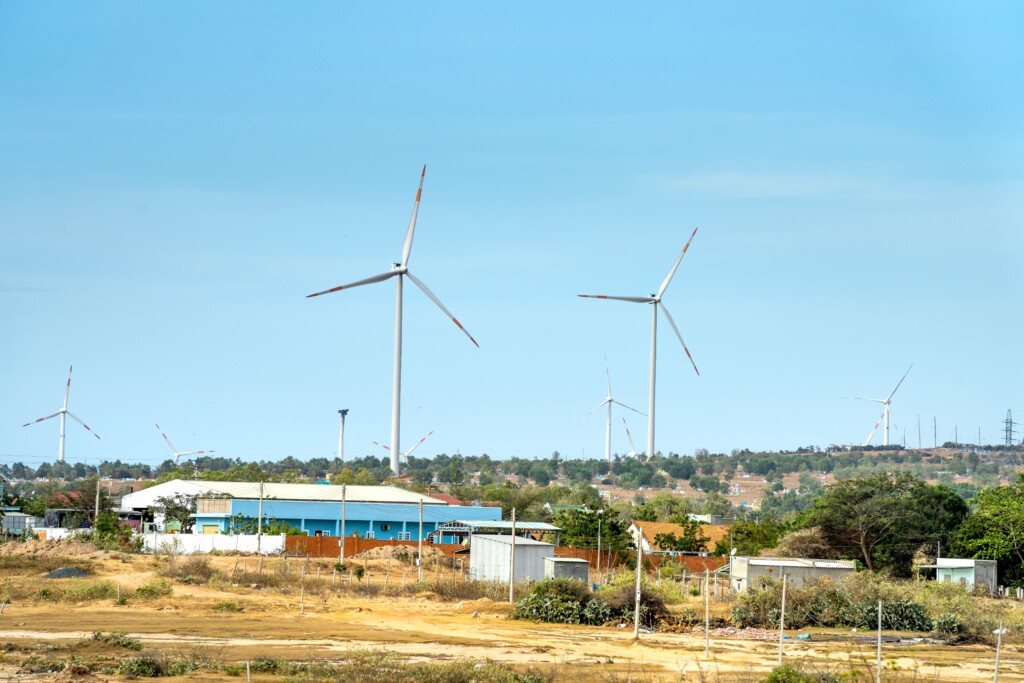Ever wondered about the “secrets” behind sustainable businesses, particularly those in the green energy sector? Ever questioned how it all works? Well, today is your fortunate day because we’re about to delve deep into the heart of it all: ethical sourcing.
Ethical sourcing, in simple terms, refers to ensuring that the products and services being provided are obtained in a responsible and sustainable way—that is, they don’t harm the environment or infringe on local communities’ rights. This practice is especially critical in the green energy sector, where materials like wind turbines, solar panels, and batteries are sourced and produced.
Remember, tapping into green energy is only truly ‘green’ when the supply chain respects both nature and humanity!
So, let’s take this journey together, uncover the practices behind ethical sourcing in the green energy sector, and discover how we can contribute to a greener and fairer world!

Ethical sourcing. You may not be familiar with the term, yet it plays a crucial role in our everyday lives. It affects what we eat, how we live, and the future of our planet. But why is it so important, especially in the green energy sector? Let’s delve deeper into this fascinating topic.
When we talk about ethical sourcing in the green energy sector, we’re discussing the responsible and sustainable procurement of materials used in the creation of renewable energy sources. Ethical sourcing goes beyond simple profit margins and efficiency. It dives head-first into a world of social justice, corporate responsibility, and environmental sustainability.
As consumers, ethical sourcing allows us to feel good about the products and services we use. We know they’ve come from a place of fairness and equity, contributing to a healthier world. When wind turbines spin and solar panels shimmer, we can take comfort in knowing that the raw materials are sourced responsibly.
But it’s not just about us and our conscience, there are real, tangible benefits to ethical sourcing in the green energy sector. Firstly, it promotes better quality products. When companies value their supply chain, they often end up with superior materials. This means more efficient solar panels or harder wearing turbines.
Secondly, ethical sourcing aids in preserving our planet. Less waste, minimal use of non-renewable resources, and an overall reduction in environmental footprint are some of the ecological benefits. These best practices align perfectly with the core values of the green energy sector: sustainability and environmental stewardship.
The third benefit resides in the realm of social welfare. Companies that practice ethical sourcing often provide safer working conditions, fair wages, and respect for human rights. As a result, they’re contributing to the upliftment of communities involved in their supply chain. This is especially significant in developing nations where exploitation and poor working conditions are rampant. As we journey towards a greener future, let’s invest not just in renewable energy, but in ethically sourced renewable energy.

Do you ever wonder how sourcing methods can potentially harm our environment? When companies fail to observe ethical sourcing, it can lead to severe environmental degradation. This pattern of sourcing without a conscience is unsustainable, not just for future business, but also for the planet we call home.
So, what exactly is environmental degradation? It’s essentially the worsening of our natural environment, which includes air, water, and soil, due to unethical or unsound activities.
Environmental degradation is the disintegration of the earth or deterioration of the environment through consumption of assets, for example, air, water and soil.
Let’s delve into specific ways that unethical sourcing methods are causing such degradation:
Deforestation: When sourcing requires extensive amounts of wood, forested areas are usually the first to suffer. Deforestation disrupts ecosystems, leading to a loss of biodiversity and increased greenhouse gases. By opting for renewable energy sources like wind, solar, or hydropower, we reduce the demand for wood and help protect our forests. Transitioning to these methods lessens deforestation epidemic rates.
Pollution: Factories that do not observe ethical sourcing guidelines often emit harmful chemicals into our air and waterways, thereby accelerating climate change and destroying aquatic life. These pollutants also jeopardize human health, causing respiratory issues, cardiovascular diseases, and other severe health conditions. Encouraging ethical sourcing could significantly curtail these adverse effects, contributing to cleaner, healthier communities.
Soil Degradation: Strip mining, a commonly used sourcing method for certain minerals, leads to soil erosion, disturbances in local ecosystems, and makes land unsuitable for agriculture. In worst case scenarios, mining activities can even lead to desertification. These impacts are not just momentary; they linger for generations, impacting the livelihoods of local communities significantly. Hence, ethical sourcing advocates for responsible extraction practices, which minimize environmental damage and uphold sociocultural values.
As you can see, the ripple effect of unethical sourcing is vast and destructive. The steps taken today by businesses in their sourcing decisions affects not only our planet tomorrow but also the wellbeing of communities and economies today.

As consumers, we may often overlook the journey our products take before they reach us. From the clothes we wear to the food we eat, and now, even the energy we consume—everything we use has a source, and how these sources are managed can have significant social implications.
Unethical sourcing—a practice where resources are obtained in a manner that exploits labor or negatively impacts communities and environments—has far-reaching consequences. Let’s dig deeper into how this plays out in real-world scenarios:
Labor exploitation is a common pitfall in unethical sourcing. According to a report by the International Labour Organization (ILO), approximately 30 million people are trapped in forced labor worldwide. In the energy sector, there have been instances where the extraction of raw materials like cobalt, used in batteries for renewable energy storage, involves severe human rights abuses. A study by Amnesty International revealed that in some cobalt mines in the Democratic Republic of Congo, child labor and dangerous working conditions are prevalent.
The cobalt mines in the Democratic Republic of Congo supply about 60% of the world’s cobalt. Amnesty International’s report indicated that some children working in these mines are as young as seven, and they work for up to 12 hours a day in extremely hazardous conditions.
Unethical sourcing can also wreak havoc on local communities. For example, the extraction of rare earth metals, crucial for solar panels and wind turbines, often involves toxic chemicals that can contaminate local water supplies. According to a report by the United Nations Environment Programme, mining for rare earth metals in countries like China has led to water contamination affecting over 100,000 people.
In Inner Mongolia, where a significant portion of the world’s rare earth metals are sourced, the mining activities have led to extensive land degradation and water contamination, disrupting the livelihoods of local communities. According to a Reuters report, the rate of birth defects in the region is six times higher than the national average, presumably due to the environmental degradation.
These are just a couple of examples that highlight the depth of the problem. Unethical sourcing is a systemic issue that requires integrated efforts for remediation. As consumers, being aware of these realities and choosing ethically-sourced products can be the first step in the right direction.

In the realm of ethical sourcing, understanding real-world applications can offer invaluable insights. Let’s delve into a couple of examples of companies that have successfully adopted ethical sourcing practices, as well as some that have fallen short.
Apple, the tech behemoth, didn’t start with an immaculate ethical track record. However, the company has made strides in recent years to improve its practices. According to Apple’s 2021 Supplier Responsibility Report, they are working to ensure that their entire supply chain, from the mining of minerals to the assembly of devices, adheres to ethical practices. They have shifted towards using recycled and renewable materials in their products, with the aim of one day being 100% carbon neutral across their entire business.
Lesson: Apple’s turnaround proves that it’s never too late for a company to adopt ethical sourcing practices. The key is committing to continual improvement and being transparent about your journey.

Tesla is another shining example in the arena of ethical sourcing. The company is known for its stringent supplier code of conduct, particularly concerning cobalt, a mineral often linked to unethical mining practices. Tesla’s commitment to reducing cobalt in its batteries and promoting recycling programs is notable.
Lesson: The takeaway here is clear—setting high ethical standards from the outset and strictly enforcing them can lead to a sustainable and ethical supply chain.

Palm oil production has been highly criticized for causing deforestation and habitat destruction, particularly in Southeast Asia. Companies in this sector have often ignored ethical sourcing policies, resulting in extensive ecological damage and community displacement.
Lesson: Ignoring ethical sourcing can lead to irreversible ecological destruction and significant financial and reputational risks. Prevention is better than cure; hence proactive ethical measures are crucial.
The fast fashion industry is another sector that has come under scrutiny for poor ethical practices. According to the Clean Clothes Campaign, many workers in this sector earn wages well below the living standard and work in subpar conditions. The industry is also a significant contributor to pollution.
Lesson: Prioritizing short-term profits over long-term sustainability can result in a detrimental impact on both human lives and the environment. Ethical considerations must be integral to business practices, not an afterthought.
Ethical sourcing is as much about setting rigorous standards as it is about effective implementation. Whether we examine success stories like Apple and Tesla or learn from the shortcomings of the Palm Oil and Fast Fashion industries, one fact is evident: ethical sourcing requires commitment and action. Let’s take cues from these case studies to make our world a more ethical and sustainable place.
We all have a role to play in fostering ethical sourcing in the green energy sector, from consumers to businesses and policymakers. Here’s how you can get involved and make a difference:
For Consumers:
Note: Consumer demand can often drive change within companies. Your buying habits and advocacy can push companies toward more ethical practices.
For Businesses:
Engaging in ethical sourcing may at first seem like a challenging process but it’s, in fact, one filled with immense potential benefits. So, what steps can a business undertake to support ethical sourcing in the green energy sector?
By embedding sustainability and ethical sourcing in your business operations, you contribute to protecting the environment and supporting communities. But what’s the bigger picture? Let’s delve into understanding why ethical sourcing matters.

Ethical sourcing involves ensuring the products being sourced are obtained in a responsible and sustainable way, that the workers involved in making them are safe and treated fairly and that environmental and social impacts are taken into consideration during the sourcing process.
Ethical sourcing in the green energy sector is not just a corporate responsibility, it’s an opportunity to foster sustainable development, boost business image, and contribute to a healthier planet.
| Environmental Impact | Community Impact |
|---|---|
| Investing in renewable energy sources lowers carbon emissions and mitigates the harmful effects of climate change. | Supporting fair trade and safe working conditions promotes social justice and economic development in local communities. |
| Conserving resources and reducing waste leads to a healthier ecosystem. | Creating sustainable job opportunities fosters community growth and prosperity. |
Ethical sourcing in the green energy sector holds the key to a better future. In traversing the path of ethical sourcing, every choice counts. Let’s learn from past triumphs and missteps to build a greener, fairer world. The stories shared here illuminate the way forward, urging us to take thoughtful steps in how we source, use, and advocate for ethical practices.
Stay a while and read more posts like this
Let’s devote a few minutes to envision our world in 2100. It’s quite a thought experiment, given the dramatic transformations our planet has experienced in...
With climate change looming large, the world is embarking on a quest for solutions to heal our ailing planet. Solar geoengineering emerges as a burgeoning field,...
Taking on parenthood comes with unique choices that factor in more than just our family’s immediate needs. For modern parents, who are not just guardians of...